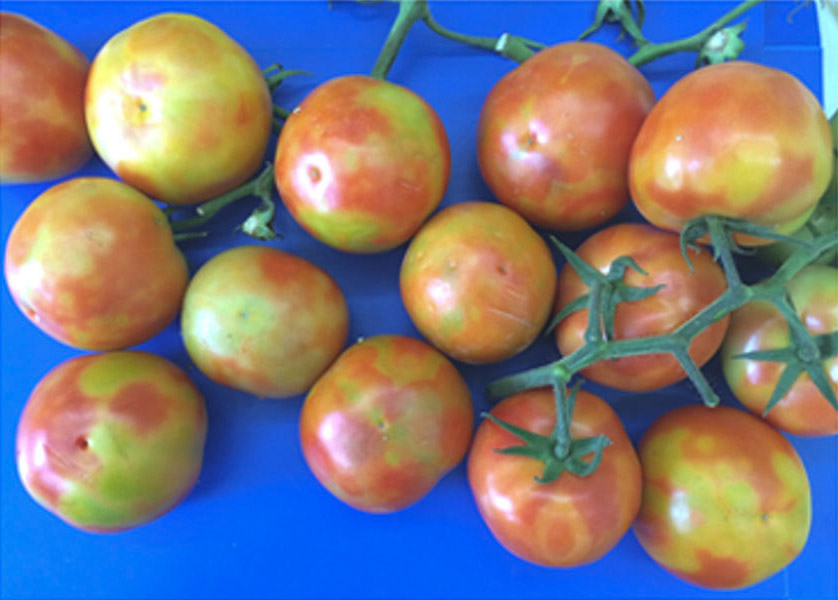
DPIRD has taken steps to protect WA’s horticulture industry from the virus which has been confirmed at two businesses in the Northern Adelaide Plains region.
South Australia has implemented some quarantine measures at the impacted properties to manage the risk of the virus spreading.
DPIRD Chief Plant Biosecurity Officer Vincent Lanoiselet said as an additional interim measure, DPIRD would quarantine any consignments of host fruit and packaging from the infected properties upon arrival in WA.
“This is the first time tomato brown rugose fruit virus has been confirmed in Australia. While there is no evidence to indicate the virus has spread from the impacted properties, it is important for all producers to examine their on-farm biosecurity,” Dr Lanoiselet.
“Tomato brown rugose fruit virus is highly infectious and can significantly reduce yields in tomato, chilli and capsicum crops.
“Symptoms of the disease in tomato and capsicum include yellow spots, brown wrinkled patches, and deformed or uneven ripening. Leaves can appear with mottling or mosaic patterning, deformation, puckering and wilting.
Dr Lanoiselet said there were a number of steps producers could take to minimise the risk of introducing plant pests and diseases by ensuring staff and visitors comply with on-site biosecurity and hygiene practices.
This includes avoiding unnecessary visits and contact with crops; reducing equipment and materials shared between facilities; monitoring for disease symptoms; disinfecting tools, propagating material and equipment and using seed that has been tested for ToBRFV.
If you suspect the presence of ToBRFV in crops in WA, please report this via the department’s MyPestGuide® Reporter app (Google Play Store, Apple iTunes Store or website).
Alternatively, sightings can be reported to the department’s Pest and Disease Information Service on (08) 9368 3080 or email padis@dpird.wa.gov.au.


